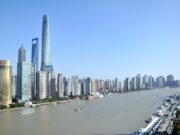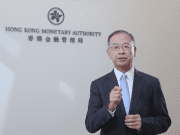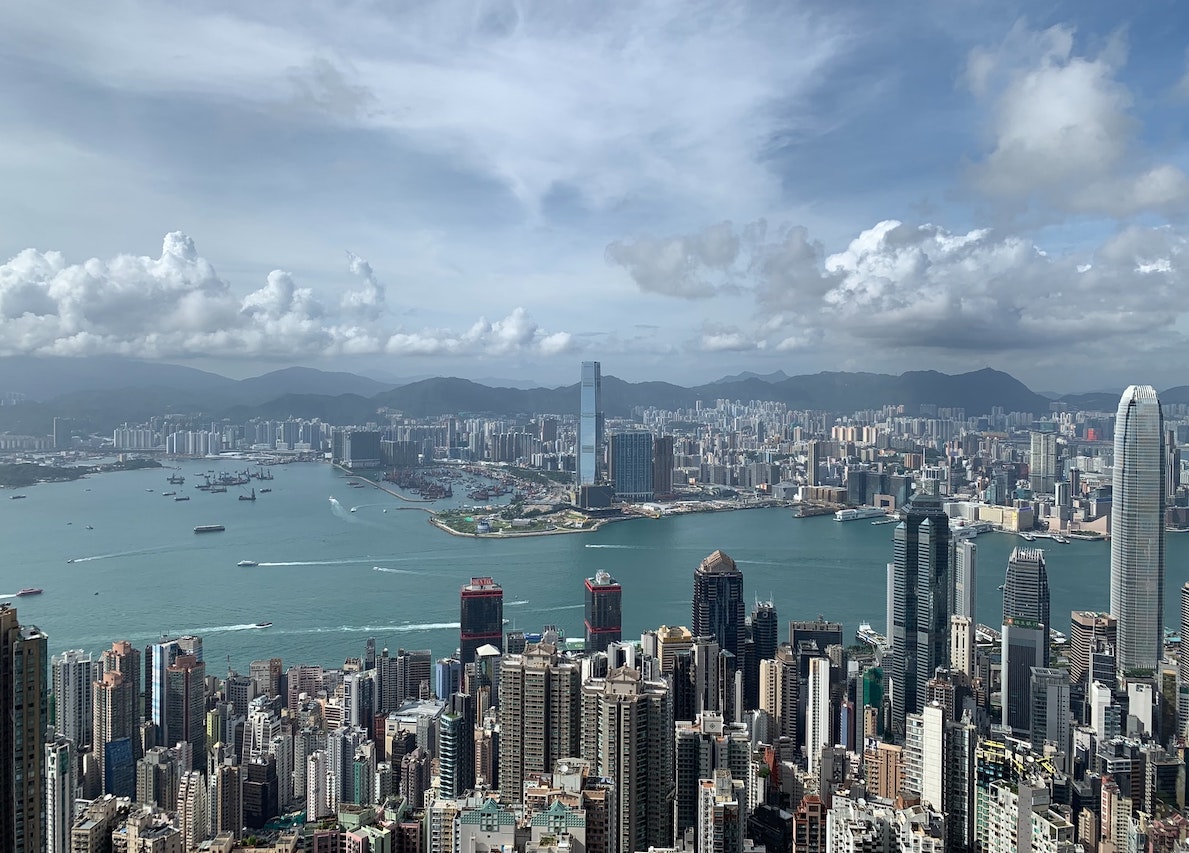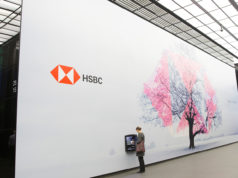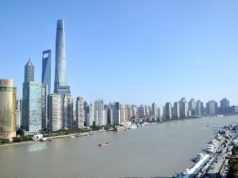IMF Commends Hong Kong Financial System, Official Foreign Reserve at $494.5 Billion
14th June 2021 | Hong Kong
The International Monetary Authority (IMF) has commended on Hong Kong’s financial system, with the conclusion of the Financial System Stability Assessment (FSSA) on Hong Kong SAR on the 21st May 2021. The FSSA report reaffirmed Hong Kong’s position as an international financial centre with a resilient financial system, sound macroeconomic and prudential policies, and robust regulatory and supervisory frameworks. At the end of May 2021, Hong Kong Monetary Authority (HKMA) reported official foreign currency reserve assets of $494.5 billion (April 2021: $490.6 billion).
“IMF Commends Hong Kong Financial System, Official Foreign Reserve at $494.5 Billion”
IMF Review on Hong Kong Financial System

The IMF Mission visited Hong Kong in September 2019 and conducted a virtual mission in February and March 2021 for discussions with government authorities, financial regulators and market players. The FSSA Report was considered and adopted by the IMF Executive Board on 21s May 2021.
The FSAP is a comprehensive and in-depth assessment conducted by the IMF in respect of an economy’s financial sector, analysing the resilience of the financial system, the quality of the regulatory and supervisory framework, and the capacity to manage and resolve financial crises. Hong Kong is one of 47 jurisdictions with systemically important financial sectors that have been identified for mandatory review under the FSAP.
Hong Kong Financial Secretary, Paul Chan:
“The Government welcomes the IMF’s reaffirmation of Hong Kong’s position as an international financial centre. The positive appraisal of our financial system is a clear recognition of the Government’s long-standing efforts to safeguard financial stability, which is underpinned by sound policies as well as robust institutional frameworks and market infrastructures. We will continue to reinforce our core strengths, give full play to our unique advantages and identify new areas of growth, with a view to ensuring the long-term competitiveness and prosperity of Hong Kong.”
Hong Kong Secretary for Financial Services and the Treasury, Christopher Hui:
“We thank the IMF for the fair and balanced assessment on Hong Kong’s financial system, which confirms once again the resilience and stability of our system. We will continue to work closely with regulators to maintain our robust and forward-looking financial regulatory regime and upgrade the financial infrastructure, in order to fortify our status as an international financial centre.”
Chief Executive of the Hong Kong Monetary Authority (HKMA), Eddie Yue:
“I welcome the IMF’s steadfast support of the LERS as the bedrock of our monetary and financial stability. It is encouraging to note the IMF’s assessment that our banking supervision and regulation remain strong, our macro-prudential measures remain appropriate, and its endorsement of our continued efforts to strengthen the regulatory and supervisory framework, and promote the competitiveness of Hong Kong’s financial sector.”
CEO of the Hong Kong Securities and Futures Commission (SFC), Ashley Alder:
“The FSSA Report acknowledges Hong Kong’s significant role as a premier listing platform and a global asset and wealth management centre, and I am pleased that the IMF recognises our efforts to strengthen our regulatory and supervisory framework and foster closer co-ordination with our Mainland counterparts. I also welcome the IMF’s encouragement of our initiatives to tackle the risks to financial stability posed by climate change.”
Hong Kong CEO of the Insurance Authority, Clement Cheung:
“Since it commenced independent operation in June 2017, the Insurance Authority has made strenuous efforts to strengthen the supervision of insurance companies and intermediaries in Hong Kong, and I am pleased that our achievements are duly acknowledged by the IMF. Looking forward, we will continue our efforts to implement the group-wide supervision framework and the risk-based capital regime, as well as to enhance cross-sector co-ordination on emerging risks including cybersecurity and climate change.”
Hong Kong:
- China Regulators Set $23.2 Billion Quota for Greater Bay Area Wealth Management Connect
- G7 Nations Agree to Corporate Tax of at Least 15%, Hong Kong, Singapore & Switzerland Prepare for Change
- Hong Kong Private Equity Funds to Have 0% Tax for Carried Interest
- The First ETF Cross-Listing on Hong Kong and Shanghai Exchange, HK ETF AUM at $51 Billion
- Hong Kong Exchange New CEO Nicolas Aguzin Starts 3-Year Term
- Hong Kong SFC and Stock Exchange to Tackle IPO Misconduct, Inflated IPO Prices to Meet Listing Requirements
Related:
- United Nations Project Economic Growth in 2021 at 5.4%, China to Grow 8.2%
- China Sets 2021 Economic Growth Rate at Above 6%
- IMF Revised 2020 Global GDP Forecast from -3% to -4.9%
- IMF 2020 Report – The Worst Recession Since the Great Depression
IMF Executive Board Concludes Financial System Stability Assessment with Hong Kong SAR:

Sound macroeconomic and prudential policies over the years have provided Hong Kong SAR with important buffers to cope with the current slowdown and future shocks. The banking sector remains well capitalized, profitable, and nonperforming loan ratios remain low. Hong Kong SAR’s exchange rate mechanism, the Linked Exchange Rate System (LERS), has continued to support financial stability, and is underpinned by large foreign exchange reserves. In response to the COVID-19 pandemic, the authorities took a multi-pronged approach to support the economy and maintain financial stability.
The FSAP identified the extensive linkages to Mainland China, stretched real estate valuations, and exposure to shifts in global market and domestic risk sentiment, compounded by escalating U.S.‑China tensions, as the main macro-financial risks. Stress tests conducted by the FSAP show that the financial system is resilient to severe macro-financial shocks and the banking system is also resilient to liquidity stress, but there are pockets of vulnerabilities in foreign bank branches, investment funds, households, and nonfinancial corporates. Accordingly, the FSAP made recommendations for enhancing oversight over banking groups with both foreign branches and local subsidiaries in Hong Kong SAR, heightening monitoring of liquidity risk for banks operating with multiple group entities, and ensuring that internal risk models to monitor lending to Mainland China are sufficiently forward looking.
The institutional framework for macro-prudential policies is functioning well, and the current policy stances on real estate and countercyclical capital buffers (CCyB) are appropriate. Nonetheless, there is further scope for strengthening systemic risk monitoring, improving communication, and bringing non-bank mortgage lending within the regulatory ambit.
Banking supervision and regulation remain strong overall and with respect to cross-border linkages and housing risks, but continued attention and review is needed in regard to competing priorities and the adequacy of supervisory resources. The establishment of the Insurance Authority has greatly strengthened insurance regulation and the supervision of both insurers and intermediaries. The regulatory and supervisory framework for securities trading systems has been strengthened since the 2014 FSAP, as also supervisory coordination with the Mainland.
Crisis management arrangements have been significantly strengthened by the introduction of a comprehensive resolution regime under the Financial Institutions Resolution Ordinance (FIRO) in 2017. Updating some aspects of the depositor protection regime, including the scope of depositor preference, the mandate of the Deposit Protection Board, and reviewing the size of the Deposit Protection Scheme fund would ensure full consistency with the FIRO.
The FSAP examined the authorities’ active role in promoting Fintech and recommended adopting a more proactive cross-sectoral approach as Fintech pervades across activities. The FSAP welcomes the authorities’ plan towards climate-related mandatory disclosures, the Common Ground Taxonomy, and risk assessments.
Executive Board Assessment
Executive Directors broadly agreed with the thrust of the recommendations in the 2021 Financial System Stability Assessment (FSSA). Noting the substantial macro-financial challenges that Hong Kong SAR’s economy has faced over the past two years on both the domestic and external fronts, they recognized the resilience of its financial sector, underpinned by sound policies, ample buffers, and strong oversight. Looking ahead, Directors considered that the main macro-financial vulnerabilities relate to stretched real estate valuations and exposure to shifts in global market and domestic risk sentiment. Most Directors also mentioned risks associated with extensive linkages with Mainland China, with a few Directors highlighting also the long-term benefits from such linkages.
Directors welcomed the banking system’s resilience to severe macro-financial shocks under the stress tests, but also noted pockets of vulnerability in the corporate, household, and investment fund sectors. To further strengthen resilience, they encouraged monitoring households’ debt repayment capacity at a disaggregated level, strengthening data collection, and bringing nonbank mortgage lending within the regulatory framework.
Directors welcomed the strengthening of supervisory and crisis management frameworks since the 2014 FSAP. They agreed that banking supervision and regulation remains strong, but broadly encouraged enhancing oversight and liquidity risk monitoring of banking groups with both local subsidiaries and foreign branches. While noting that Hong Kong SAR’s macroprudential policy framework is functioning well and that the current policy stances on real estate and countercyclical capital buffers are appropriate, Directors saw scope for further strengthening systemic risk assessment and communication. Many Directors also supported providing de jure operational independence to the Hong Kong Monetary Authority. Directors generally underscored the importance of continuing to strengthen regulation and preserving the rule of law to maintain a solid foundation for competitiveness as an international financial center.
Directors welcomed the authorities’ strategic prioritization of policies to combat the risks of climate change, including through mandatory disclosures, the Common Ground Taxonomy, and risk assessments.
Directors welcomed the authorities’ active role in promoting Hong Kong SAR as a fintech hub in Asia, and encouraged continued coordinated efforts among the regulators to guide a proactive and consistent cross-sectoral approach. They encouraged the authorities to continue improving the solid AML/CFT regime.
About IMF

The IMF was conceived in July 1944 at the United Nations Bretton Woods Conference in New Hampshire, United States. The 44 countries in attendance sought to build a framework for international economic cooperation and avoid repeating the competitive currency devaluations that contributed to the Great Depression of the 1930s.
The IMF’s primary mission is to ensure the stability of the international monetary system—the system of exchange rates and international payments that enables countries and their citizens to transact with each other.
Visit: IMF
Sign Up / Register
Caproasia Users
- Manage $20 million to $3 billion of assets
- Invest $3 million to $300 million
- Advise institutions, billionaires, UHNWs & HNWs
Caproasia Platforms | 11,000 Investors & Advisors
- Caproasia.com
- Caproasia Access
- Caproasia Events
- The Financial Centre | Find Services
- Membership
- Family Office Circle
- Professional Investor Circle
- Investor Relations Network
Monthly Roundtable & Networking
Family Office Programs
The 2025 Investment Day
- March - Hong Kong
- March - Singapore
- July - Hong Kong
- July - Singapore
- Sept- Hong Kong
- Sept - Singapore
- Oct- Hong Kong
- Nov - Singapore
- Visit: The Investment Day | Register: Click here
Caproasia Summits
- The Institutional Investor Summit
- The Investment / Alternatives Summit
- The Private Wealth Summit
- The Family Office Summit
- The CEO & Entrepreneur Summit
- The Capital Markets Summit
- The ESG / Sustainable Investment Summit





